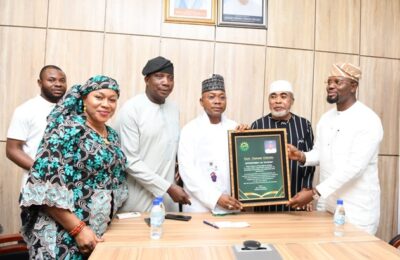Microcheating is the quiet storm reshaping the dynamics of modern relationships. It manifests in subtle, seemingly harmless actions — liking a photo, sending a message, or interacting with someone outside a committed relationship. While these actions might feel insignificant in the moment, they can erode the trust at the heart of a relationship. In Nigeria, where fidelity and loyalty are pillars of both family and cultural life, microcheating is a silent but disruptive force that challenges long-standing expectations of commitment and respect.
In Nigerian society, relationships are often built on mutual trust, respect, and an unspoken commitment to monogamy. For many, these values are sacred. Infidelity, historically seen as physical betrayal, has now evolved into something less tangible but equally damaging. In the digital age, it’s not about a clandestine meeting in a hotel room, but rather the emotional intimacy built through messages, likes, and comments. This new form of emotional cheating or betrayal is increasingly common, especially among the youth, who navigate relationships while simultaneously engaging in the constant flow of online interactions.
Therapists and relationship experts have begun to acknowledge that the digital age has blurred the lines of fidelity. “In many relationships, microcheating is often dismissed as insignificant, but it can have serious emotional repercussions,” says Dr. Olamide Adedeji, a relationship therapist based in Lagos. “It might start with something as harmless as a compliment or a simple ‘like,’ but over time, it creates a sense of emotional intimacy that can pull someone away from their partner.”
Microcheating is especially challenging in Nigeria because of the cultural emphasis placed on loyalty and commitment. In traditional Nigerian communities, including the Igala, Okun, and Egbira, any flirtation or emotional attachment outside a marriage is considered a serious violation. In many places, such behaviour isn’t just seen as an individual betrayal — it’s a betrayal of family, community, and cultural values. For example, in the Igala culture, it is often said, “A person who brings shame to their relationship also brings shame to their family.” This proverb underscores the deep social repercussions that accompany breaches of trust.
Yet, in the modern, digital world, microcheating is much harder to define. A survey conducted by the Nigerian relationship website NaijaLove revealed that many young Nigerians are unsure about what constitutes cheating. “I don’t think it’s cheating if I talk to my ex,” said Funke, a 24-year-old university student from Lagos. “It’s just talking. We’re not getting back together or anything.” Similarly, Olu, a 28-year-old banker, added, “I’ve liked photos and commented on my ex’s posts a few times. It’s not like we’re planning to meet up, but sometimes I wonder if it’s wrong.”
These responses reflect the confusion felt by many in Nigerian relationships. For a generation raised on constant connectivity and social media, it’s easy to see how behaviours like liking an ex’s photo or sending a private message can seem harmless. But experts argue that microcheating is more than just about physical proximity. It’s about emotional investment. Nkechi Nwoko, a relationship counsellor based in Abuja, explains: “Emotional attachment is a key component of any relationship, and when that attachment starts to extend to someone outside of your partner, it creates a divide. The harm of microcheating is that it chips away at that bond in ways that can be difficult to see until it’s too late.”
The rise of microcheating can be seen in the way Nigerians are engaging with digital platforms. With more people working from home and spending significant amounts of time online, the temptation to form emotional connections with others is ever-present. Platforms like Instagram, Twitter, and WhatsApp allow individuals to interact in increasingly intimate ways, often with little fear of physical consequences. This shift has been particularly noticeable in urban centers like Lagos, Abuja, and Port Harcourt, where social media and online communication have become integral to everyday life.
Furthermore, the normalization of digital sexual behaviours, including sexting and phone sex, has blurred the lines of fidelity even further. In many urban Nigerian communities, these acts have become part of the digital landscape, with many young people engaging in sexually suggestive chats or exchanging intimate photos with others, sometimes even with people they’ve never met in person. While some may see these interactions as harmless or as a natural extension of modern relationships, experts warn that they often lead to deeper emotional involvement — and, in many cases, can be just as damaging as physical infidelity.
Recently, an Igala woman, set to marry her Igbo fiancé, found her relationship unraveling just days before their wedding due to microcheating. The fiancé, who had been supportive and eagerly awaiting the union, discovered that his bride-to-be had been chatting with a stranger online. In these conversations, she was not only exchanging nude pictures but also texting “I love you.” The stranger went further, demanding intimacy before the wedding, offering a new iPhone as an incentive and promising that he would never disturb her again if she agreed to meet. When the fiancé confronted her, he made the painful decision to call off the wedding. His decision was driven by the sense of betrayal that her online actions represented. For him, these emotional exchanges, which seemed innocent to her, were a violation of the sacred trust they had built, ultimately leading to the dissolution of their relationship. This story underscores how microcheating can carry significant consequences, even when it does not involve physical contact.
“While microcheating might not always involve physical contact, it creates an emotional intimacy that can ultimately be more harmful to a relationship,” says Dr. Adedeji. “It’s not just about the betrayal of physical loyalty; it’s about the erosion of emotional commitment.”
For Nigerian couples, microcheating presents a complex challenge. Many traditional norms about relationships — loyalty, emotional connection, and respect for one’s partner — are now competing with the allure of digital connections and the ease with which emotional intimacy can be developed online. The key to overcoming this modern challenge lies in redefining fidelity to include emotional and digital loyalty.
A campus interview in Kogi uncovered that many young Nigerians are wrestling with the concept of digital fidelity. “My boyfriend is always texting a white lady,” said 23-year-old Grace. “At first, I didn’t mind. But now, it feels like he’s more emotionally invested in her than me.” Grace’s concerns highlight the growing awareness among Nigerians of how emotional investments in digital relationships can weaken the foundation of real-life partnerships.
The rise of microcheating in Nigeria is a sign of a cultural shift — one that challenges traditional ideas of fidelity while calling for new frameworks of commitment in the digital age. As Nigerian society continues to evolve, so too must the conversations around relationships. Couples must engage in open dialogues about their expectations, digital boundaries, and what it means to be loyal in the age of likes, messages, and emojis.
Ultimately, the solution lies in communication and setting clear boundaries. “Microcheating is not something to ignore. It’s a subtle, often invisible force, but it can tear a relationship apart if left unchecked,” warns Nkechi Nwoko. “What may seem harmless at first could lead to emotional distance, jealousy, and distrust. Couples need to establish boundaries and be honest about their feelings.”
In a world increasingly dominated by social media and digital connections, Nigeria’s young couples must reconcile the tension between tradition and modernity. Just as loyalty was once defined by physical presence, so too must it now be defined by emotional and digital integrity. In the end, microcheating is not just about what you do; it’s about who you choose to invest your time, emotions, and energy in — and whether your partner can trust you with that investment.
– Inah Boniface Ocholi writes from Ayah – Igalamela/Odolu LGA, Kogi state.
08152094428 (SMS Only)




